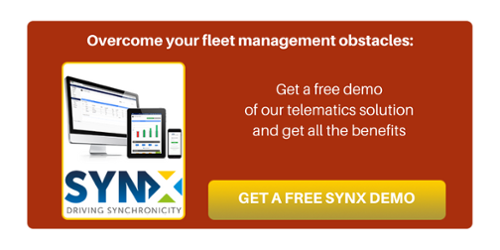
Businesses which depend on vehicles in the course of their commercial activity face certain obstacles whether they are small or large operations—the challenge of smaller fleets usually entails having to deal with limited resources and having a multitasking management, while bigger ones struggle to control all of their assets at any given time due to the shear volume or the fact that they are dispersed over numerous locations.
But what are a few of the common traits that present similar obstacles for managers of small or large fleets?
#1 - Detecting problems in a timely manner. Small issues or problems in fleet might go unnoticed for quite some time before they are actually addressed. In the case of big fleets, this could happen due to the actual quantity of assets that need to be controlled. Issues might appear unexpectedly for the fleet director or, even worse, lead to a major incident, which is only the tip of the iceberg. In smaller fleets, manual processes and a scarcity of technological tools available might slow down the implementation of programmes and processes, causing delays in reporting issues or flaws in compliance that could only postpone problems. How then could smaller and larger fleets detect issues promptly, avoiding those unexpected incidents cropping up and negatively impacting the business, and thus proceed with a fast solution?
#2 - The never-ending cost reduction struggle. Reducing fleet costs is a constant concern for fleet managers and probably their highest priority as the pressure to save money is relentless due to the economy, the general business climate and the uncertainty about the global economic future. Some fleet directors are even given a reduction goal in global fleet costs and expected to come up with actions that lead to its accomplishment. Though little can be done about some factors that do impact costs, on the other hand some of them can be addressed quite effectively. Some expenses might seem unexpected, but with proper organisation and a global view on vehicle activity it should be possible to make reductions. Coming back to the first point, visibility as well as the ability to identify issues promptly might assist cost reduction goals.
#3 – Rapid access to the right fleet information. Both big and small fleets might struggle in finding the specific information they need swiftly. For bigger fleets, running a high number of assets might be the cause, while for smaller ones the use of spreadsheets might be a factor. You might also be looking for something specific that is not recorded in your written documentation, fuel invoices or logbooks when they ought to be, and eventually commit a lot of time in a frustrating search for something elusive. What if you could track your assets and have their activity documented and accessible in just a few seconds...





